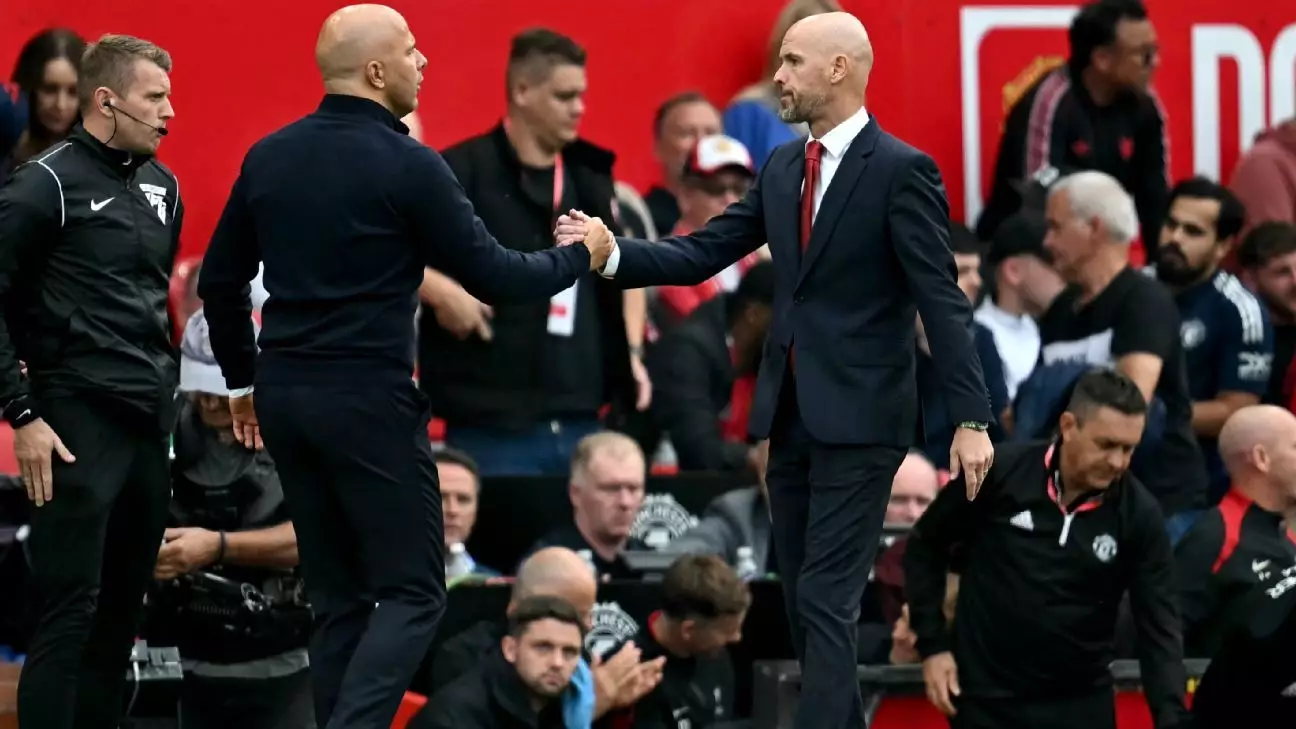The world of football is often ruthless, particularly in the high-stakes environment of the Premier League. The recent sacking of Erik ten Hag by Manchester United has sent shockwaves through the footballing community and elicited a wave of sympathy from fellow managers. His departure, marked by a tumultuous two-and-a-half-year term, raises deeper questions about managerial pressure, the culture of instant results, and the nature of support among coaching peers.
Erik ten Hag’s time at Manchester United began with optimism. Having earned acclaim for his impressive tenure at Ajax, he was viewed as a suitable architect to restore the Red Devils to former glory. However, as his managerial journey unraveled, the reality of competing in the Premier League with its relentless demands began to take its toll. The final straw came after a disappointing loss to West Ham, landing United in a precarious position, 14th on the table and grappling with continued failures on the European stage.
The struggles that ten Hag faced were not solely due to his tactical abilities or team performance. The complexities of managing a club with such a storied history, under immense media scrutiny and fan expectations, can overwhelm even the most seasoned managers. Football is a results-driven business, yet this harsh reality does not soften the blow when someone of ten Hag’s caliber falls victim to the incessant pressure.
The immediate response from rival managers highlights the shared understanding within the coaching community of the unique challenges they face. Liverpool’s Arne Slot referred to ten Hag’s dismissal as “a pity,” commenting on the emotional toll that such events take on individuals. When one manager is dismissed, it is easy to forget that behind the headlines are people who dedicate their lives to the sport, often facing the repercussions of results that fall painfully short of expectations.
Pep Guardiola echoed these sentiments, expressing sorrow for ten Hag while acknowledging the harsh realities of professional football. His reflections underscore a critical point: while managers are entrusted with the success of their teams, they also face a precarious situation where a few poor results can lead to a swift exit. Mikel Arteta’s thoughts further reinforced this idea; the emotional weight of such decisions affects not just the individual coach but the overall culture and camaraderie within the sport.
Ange Postecoglou’s perspective that ten Hag’s sacking was “almost inevitable” articulates the unforgiving nature of football management today. In an era where results are critiqued so publicly and instantly, the stakes have never been higher. Fans expect immediate gratification from performances, while clubs are under continuous pressure from sponsors and stakeholders. This reality raises pertinent questions: Is the current model sustainable? Could the focus on instant results be improved by allowing managers greater time to build a cohesive team?
Club management’s decision to replace ten Hag with Sporting CP’s Rúben Amorim is indicative of the modern trend of brief managerial tenures. The inclination towards hiring coaches with potentially eye-catching resumes, predominantly from outside the league, signals a desire for fresh ideas yet raises concerns about continuity and the development of club identity.
Despite the disappointment of his exit, there is a belief that Erik ten Hag’s experience will lead him back to a prominent position in the football hierarchy. His record speaks volumes; he has proven his prowess in nurturing talent and implementing effective systems. The outpouring of support from colleagues suggests he has earned respect within the managerial fraternity, reinforcing the view that the world of football can be unforgiving, yet bound by a shared understanding of its inherent challenges.
As Manchester United seeks to secure a new coach quickly, the impending transition period may bring its own challenges. Football, particularly in such a fiercely competitive league, requires not just a vision but stability and a commitment to seeing plans through—even amidst the distractions of immediate results.
The fabric of football management is complex, interwoven with the narratives of triumph, despair, and resilience. Erik ten Hag’s story, though currently filled with disappointment, may serve as a critical chapter in the ongoing dialogue about expectations, leadership, and the evolving landscape of the sport.
